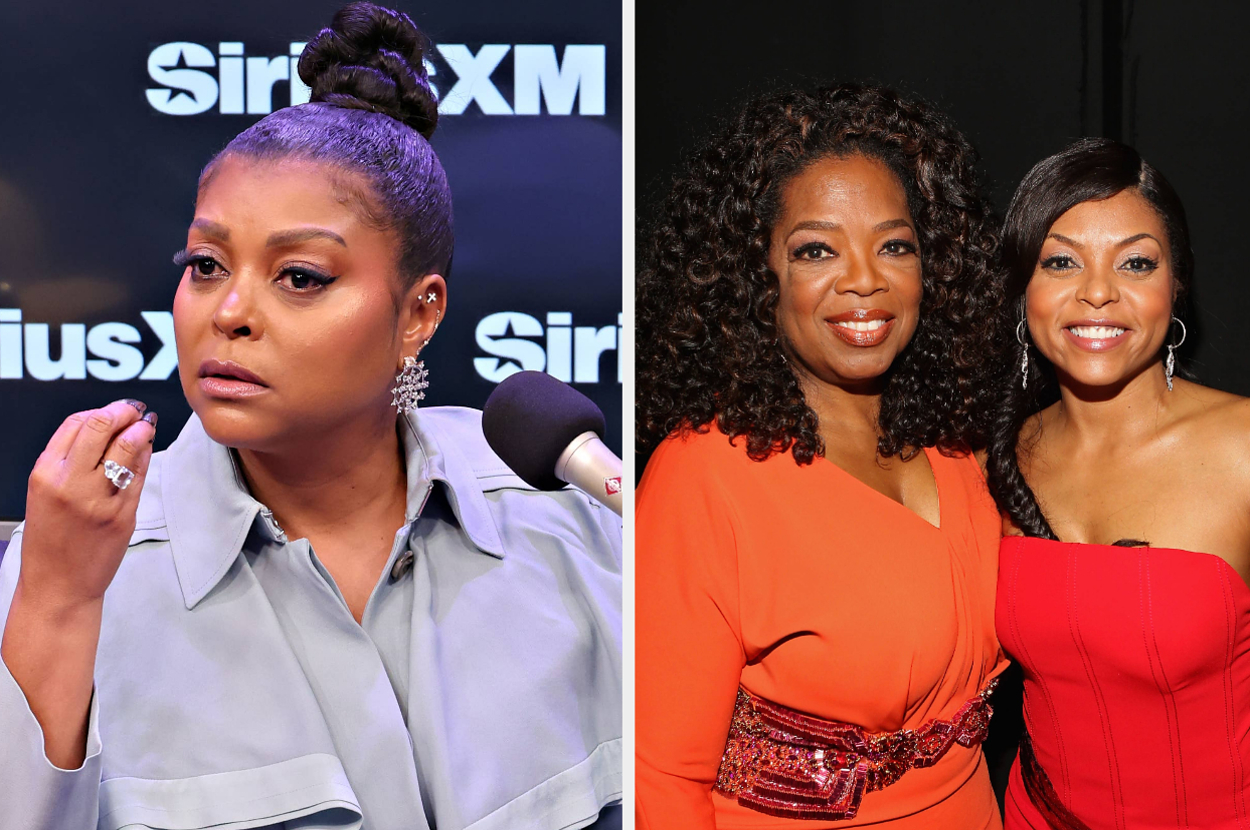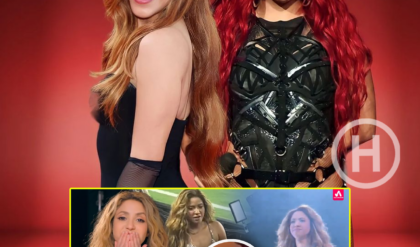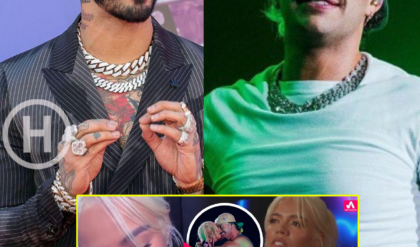Oprah Winfrey, the queen of talk and media mogul, has finally broken her silence on the explosive controversy involving Taraji P. Henson. It seems like Oprah is diving headfirst into the realm of PR damage control. Why? Well, the stakes are high, and there’s a growing concern that people might boycott “The Color Purple.” But let’s rewind a bit. In case you missed it, Taraji P. Henson, the star of Oprah’s latest production of “The Color Purple,” shook things up by shedding light on some significant pay disparities. Taraji disclosed that she almost walked away from the project due to what she perceived as inadequate compensation. Now, the question is, is Oprah’s response a genuine attempt to address the issue or a strategic move to salvage the reputation of “The Color Purple”?
At Oprah, you can observe how she gazes at Taraji, quickly diverting her eyes. Now, look at Taraji scrutinizing Oprah’s legs, discreetly concealing her emotions from Oprah. She looks up, fluttering her eyes, attempting to maintain professionalism while struggling to hold back tears. Despite her efforts, she breaks down, shedding tears in Oprah’s presence. Oprah responds with a pulled-away fake laugh, a facade we all recognize. In our world of social media and artificial intelligence, these are the challenges we face—enduring hope and forgiveness.
Oprah Winfrey, renowned as the queen of talk and media mogul, has broken her silence on the explosive controversy involving Taraji P. Henson. It appears Oprah is immersing herself in the realm of PR damage control due to the high stakes and the growing concern that people might boycott “The Color Purple.” To provide context, Taraji P. Henson, the star of Oprah’s recent production of “The Color Purple,” brought attention to significant pay disparities, nearly walking away from the project due to perceived inadequate compensation.

The question now arises: Is Oprah’s response a sincere attempt to address the issue, or is it a strategic move to salvage the reputation of “The Color Purple”? The internet began calling out Oprah, drawing parallels to warnings from Monique years ago. Taraji took to Instagram, asserting Oprah’s genuine support. However, fans speculate that Taraji might have been pressured by the studio to post the message, given the timing just days before the release of “The Color Purple.”
In a surprising twist, Oprah addressed the comment in an Instagram post but took the unconventional step of turning off comments not only on that post but on all her shared posts over the past couple of weeks. This raises questions about Oprah’s explanation for Taraji’s contemplation of walking away from “The Color Purple.” Did Oprah truly support her, or is this a narrative crafted by her PR crisis team? The internet, once again, turns against Oprah, indicating a loss of public trust.
To elaborate further, in the week leading up to the release of the new remake of “The Color Purple,” co-produced by Oprah, Taraji P. Henson brought attention to the issue of pay inequality affecting black actresses. She revealed the challenging situation she faced, almost walking away due to attempted lowballing. The fight against systemic pay disparities for black women in the industry became a central focus.
This controversy echoes past instances where figures like Monique openly called out Oprah for similar issues. Monique, in 2009, accused Oprah of blackballing her, asserting that Oprah shut her out of opportunities for daring to ask for fair compensation. Despite public criticisms, Oprah chose not to address these accusations, citing a policy of not engaging with negativity.

In summary, the controversy surrounding Taraji P. Henson’s revelations about pay disparities in “The Color Purple” has sparked skepticism and criticism towards Oprah Winfrey. The authenticity of Oprah’s response is questioned, with suspicions of damage control rather than genuine support. The conversation extends to broader issues of pay inequality for black actresses, reminiscent of warnings raised by Monique in the past.
Despite Taraji still not receiving adequate compensation, her revelation about being lowballed on Oprah’s project has garnered newfound appreciation for Monique, who publicly opposed Oprah. Monique emphasized the challenges of being gracious while being underpaid. Fatigued from hearing the same grievances, she expressed her exhaustion at the persistent disparities.
However, the narrative shifted when social media became flooded with negative comments about Oprah after the interview went viral. In response, Taraji shared an Instagram post praising Oprah, emphasizing the unwavering support and encouragement she received. Despite her positive message, fans remained skeptical, speculating that Taraji might have been pressured to post it due to concerns about “The Color Purple” flopping.
Despite Oprah’s attempts at damage control, the public response remained critical. Robin Thede urged Oprah to address the systemic problem of undervaluation of black women in the entertainment industry. Thede highlighted the challenges faced by black women across various job levels, emphasizing the need for genuine acknowledgment and action. The ongoing controversy has led to increased scrutiny of Oprah’s statements and actions, with fans expressing disillusionment and questioning the authenticity of her response.
Watch video below:





